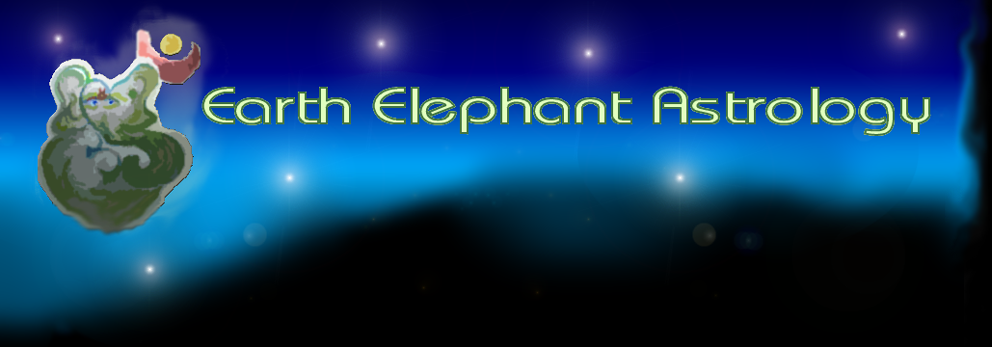Introduction to Medical
Astrology
by
Margaret Penner Choinski

“Declare the
past, diagnose the present, foretell the future; practice these acts. As to
diseases, make a habit of two things—to help, or at least to do no harm."[1]
-
Hippocrates
Ancient
astrologers , well versed in the nature of
the planets and signs through the doctrine of correspondence
[2], came to regard the human body as containing the universe---one example
of the hermetic aphorism: “As above, so below, that the unity of the one may be
perpetrated.” The zodiac, as it ran through the body from head to toe, provided
a map for reading the internal and external physical body. This idea came to be
known as the Zodiacal Man
[3] where organs and bodily
parts came under the influence of a particular sign.
From a reading of
the horoscope, the ancient
astrologer-physician could perceive the origin of disease,
the habits of the native, and/or future health. Unfortunately, much priceless
astrological information was lost through the destructions wrought upon the
library of Alexandria. The carefully compiled data regarding herbal application
and planetary placement, sign dominance, aspects, and other zodiacal information
largely vanished. However, the spread of astrology from
With the advent
of secular science, by the 18th century
astrology as a whole fell into disregard and only a few
physicians took advantage of the body of knowledge available.
And so it has been, until relatively recently. Now, many people study
astrology with the intention of using its insights to guide
them toward healing. But there is a caveat inherent in the practice of
medical astrology: we who would call ourselves medical
astrologers have an enormous amount of ground to cover in terms of
adequate knowledge. Not only that, but medicine is legally the domain of
physicians, and they themselves have the continuing benefit of
experience and access to vast amounts of information. Does this mean that we
astrologers (those without full medical
training) should not offer our services in this area? Not at all!
Astrology
offers a highly individualistic portrait of
tendencies.
Tendencies are the most likely direction in
which we are heading, and our health reflects inner tendencies too. With the
reading of a natal chart from a medical perspective, a client can be informed as
to the more subtle influences underlying their possible health concerns, likely
weaknesses that could affect their well-being and general comments as to the
overall balance of energies. With this kind of assessment the client can be
directed toward various healing treatments that are now readily available to
those who want an adjunct to allopathic care.
Medical
astrology is one particular speciality where the question “What brings
you here?” is greatly pertinent. The astrologer needs to
know---is the client ill at that moment? Have they previously sought treatment?
If so, has the treatment helped or not? What does their doctor think? If they
are not currently ill, it should be noted that a client does not present for a
medical reading without some health concern(s) in
mind already.
In medical
astrology
there is a clear procedure with which to begin the assessment. One looks at the
Ascendant, its ruler, aspects to the ruler, the sign of the ruler and its
mode, the Sun, the Moon, the sixth house and any planets therein.
Since the Ascendant is the “point of life” [4]
it reflects the vitality of the native and their ability to recover from
illness. The sixth house cusp sign
describes the physical place of weakness, and its ruler adds further information
about the nature of any potential illness. The Sun is the giver of life
and its condition is very important to knowing the basic strength of the life
force. The Moon offers a subtle comment on the emotional well being of
the native, as well as anything to do with fluids in the body. The mode of the
Ascendant’s ruler is noted; any afflictions
in its sign will affect the entire quadrature. In turn, the predominant
quadrature will indicate the type of illness and description of its physical
location.
There are no precise
formulas to correlating one’s astrology with specific
illnesses, although tendencies can be noted. Generalized observations only are
to be expected from those astrologers who are not certified in
health care. My aim is to assist in medical
investigation by pointing the way.
However, and with that in mind, the efforts of many
astrologers with an interest in healing have
provided us with a better understanding of how people follow their chart’s
indicators into illness, and how they might be helped out with hope of better
health. Much statistical information has been gathered in the last
century
[5]
and so, just as we now accept that cranberries can assist in clearing up urinary
tract infections, we also generally agree that Saturn-Moon afflictions often cause depression. The amount of
work done in the alternative health fields to find ways of pinpointing an exact
diagnosis to match the individual, cannot be overstated.
The reading of transits and progressions can
often offer warnings of critical times for one’s health; in the lexicon of the
modern physician, timing is based on statistics. One should be getting better in so many days, for example,
based on how most people react to a given medicine. But astrologers can at least
give a fairly confident prediction as to when the crisis may pass---and when it
might come back! Not only that; there will interesting and potentially
liberating revelations about the life context into which the health crisis
falls.
My work as an
astrologer seeks to find the philosophical truth behind the
tendencies---“I am not a doctor, nor am I medically trained in any way”---and so
my recommendations for a client’s health are on this basis. If this seems
inadequate in the face of a manifested ailment, if the advice comes all too late
for a particular health crisis, then perhaps hope can be placed in the client’s
modified future response to life, as a conscious being. As Hippocrates said, “at
least do no harm.” In all astrological work, medical or otherwise, this is really the bottom
line.
Links:
Bob
Marks http://www.bobmarksastrologer.com/MedicalAstrology29.0.htm
StarIQ
http://www.stariq.com/Main/Articles/P0001772.HTM
Sources
Beyerly,
Paul, The Master Book of Herbalism,
Culpepper,
Nicholas, Culpepper’s Complete Herbal, Omega Books, 1985
(1653)
Brau,
Jean-Louis; Weaver, Helen; Edmands, Allan, Larousse Encyclopedia
of
Astrology,
McGraw-Hill, 1977
Cramer,
Diane, Medical Astrology: An Introduction to Medical
Astrology:
de Vore, Nicholas, Encyclopedia of
Astrology, Astrologic Research Society, 1947
Garrison, Omar V., Medical
Astrology, Warner, 1973
Goldstein-Jacobson, Ivy, Simplified
Horary Astrology,
Houlding, Deborah, The House:
Lawlor,
Gretchen N.D., Your Health and Moon Sign
Nauman, Eileen, Medical
Astrology, Blue Turtle Publishing, 1982
Raphael,
Medical Astrology, Spica Publications, 1999,
(1924)
Spencer, Neil, true as the stars
above, Victor Gallancz, 2000
Tyl, Noel, Synthesis and Counseling
in Astrology, Llewellyn, 1998
Copyright:
Margaret Penner Choinski
Earth Elephant Astrology
FOOTNOTES
[1]
Hippocrates, Epidemics, Book I, Section XI, Translation
from the Greek original, one of many translations of his medical Hippocratic
Oath. Considered the “father of modern
medicine.”
[2] Spencer, Neil,
true as the stars above, Victor Gallancz, 2000, p.10 People are
ruled by planetary configurations and so too is everything else on Earth. Thus
like can correspond with like.
[3] Manilius,
introduced this concept in his Astronomicon
[4] Houlding,
Deborah, The House:
[5] Garrison,
p.186
Organic Divination for the Urban Jungle
Thank you for visiting Earth Elephant Astrology
Contact: elephant@earthlyreturns.com
Copyright Earth Elephant Astrology 2006-2008
